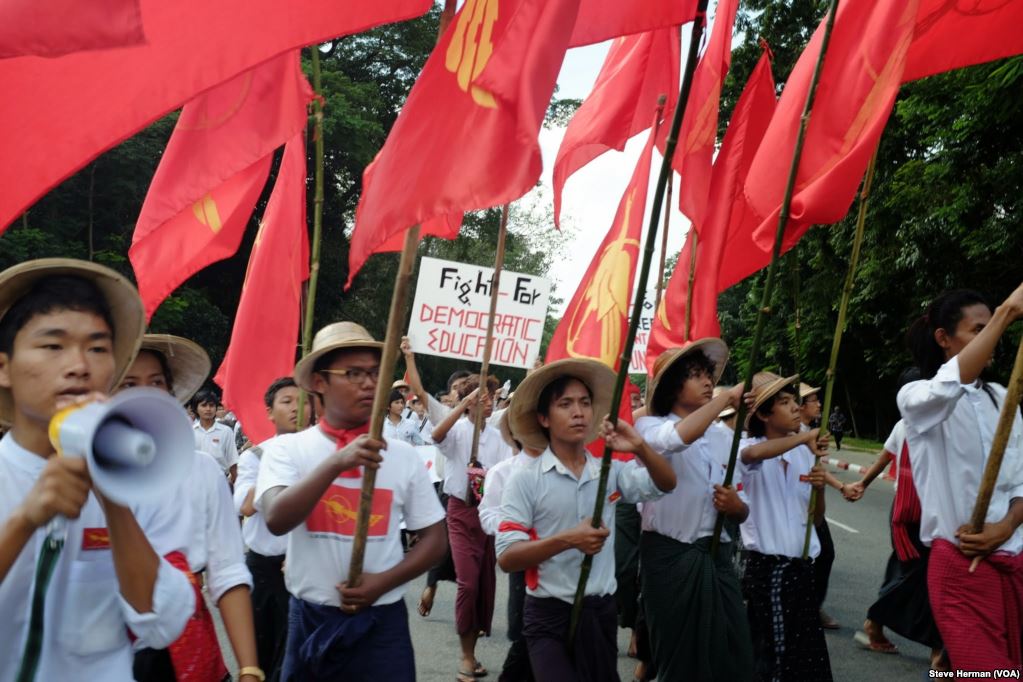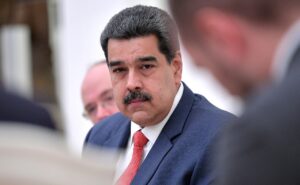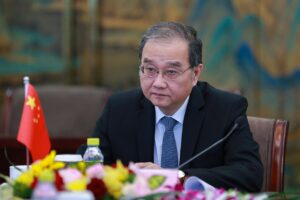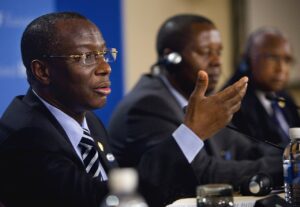Unity among Myanmar’s diverse peoples has long been an unfulfilled dream. Since the struggle for independence, there have been only three times when large parts of the nation rallied together, overcoming historical differences.
The first instance occurred when the Anti-Fascist People’s Freedom League, led by General Aung San, managed to unite much of the Burmese population. This unity was short-lived, however, since the League fractured into two groups after Aung San’s assassination in July 1947. The resultant lack of unity contributed to the military coup in 1961 that ended Burma’s post-independence democratic experiment.
The next instance followed the nationwide movement for democracy in 1988 with the birth of the National League for Democracy (NLD), which secured widespread support. Ever since, the NLD has shaped Myanmar’s political landscape, triumphing at the ballot box in multiple elections and even continuing to play a critical role in the wake of the military coup of 2021 and the resulting Spring Revolution. Though it has stumbled and committed serious errors, and despite all its setbacks since independence, the NLD has been the only organization strong enough to confront the military. Its success has been that of a civilian democratic movement. At this moment in Myanmar’s history, with the existential challenges to the democratic movement from a military junta willing to brutally suppress its own people, the NLD cannot afford to fail. It continues to be a critical asset for building an inclusive, democratic future for Myanmar — if it can live up to its ideals.
Last, since the military coup in 2021, there are encouraging signs that the NLD may be beginning the process of transforming itself into a more effective, inclusive, and responsive party, though there are also concerns that it may be slipping into prior bad practices. In just a few short months after the coup, daring and courageous NLD parliamentarians formed the CRPH, the Committee Representing Pyidaungsu Hluttaw, the legislative body in exile, representing a majority of Union Parliamentarians elected in the 2020 general election. The military, which does not recognize these results, staged the coup and fled into areas of the country controlled by ethnic resistance organizations (EROs), who welcomed them. This swift action in forming the CRPH compares favorably to NLD’s efforts three decades earlier, when, in 1988, they formed the CRPP, the Committee Representing People’s Parliament, followed by the 1990 election that the military failed to recognize.
Those same parliamentarians, in the vehicle of the CRPH, joined with others to form the National Unity Government (NUG), drawing a broad cross-section of leadership from not just the NLD, but other political movements, including EROs. They also joined with the inclusive National Unity Consultative Council (NUCC) — the interim supreme political body that formulates the political guidelines by which NUG develops and implements policies and strategies. This brought the original parliamentarians into the most inclusive assembly of EROs, state and regional consultative bodies, political parties, unions, civil society organizations, and other elected parliamentarians.
The unity cultivated in the wake of the 2021 coup has been remarkable. Even more impressive has been the dedication and collaboration of Myanmar’s people to confront and overturn the military junta, dedication that has come at a severe cost. This includes the tragic loss of lives ended by military forces; the displacement of hundreds of thousands of Myanmar citizens, many of whom lack food, shelter, and basic medical care; and the suffering of the entire population as the economy has imploded. (See, for example, reports from the World Bank, the Stimson Center, and the East Asia Forum.)
Challenges to Unity
Maintaining unity will be essential for the democratic movement to overcome the military junta. Yet there are obvious challenges to the unity, both in the NLD’s conduct and that of other parties to the movement. For example, in 2022 the NLD withdrew from the NUCC (though members of the NLD continue to participate through their membership in other bodies). Though the withdrawal was not explained, subsequent information indicated that the NLD was frustrated in its participation in the body where decision-making is done by consensus and many of the body’s stakeholders are smaller groups and individuals who have a history of poor relations with the NLD. Within the NUCC, conflicts developed among some stakeholders and the NLD, such as over the appropriate process to design and ratify an interim constitution. Both the NLD and the CRPH, along with some additional stakeholders in the NUCC, thought that the ratification process should be by both the CRPH (whose legitimacy stems from their members’ status as the last representatives elected in national elections) and the NUCC. However, suspicion of the NLD and by extension, the CRPH, most of whose members were NLD, led some stakeholders to reject this plan. An interim constitution has yet to be developed, even though the CRPH promised to ratify it without amending anything. These and other issues where conflict arose between some NUCC stakeholders and the NLD created an environment that resulted in the NLD’s withdrawal as an institutional member of the NUCC.
The conflict among the NLD and other stakeholders in the opposition movement must be addressed with patience and wisdom. The animosity is rooted in grievances on all sides of the conflict as well as differing perceptions of that conflict’s history. To continue in the past habit of merely avoiding confrontation over these issues will not be constructive for either the NLD or other stakeholders, and it threatens to undermine the Spring Revolution.
The challenge to the quest for unity, as exemplified in NUCC membership, has not been limited to the NLD’s role; it also extends to the broader universe of EROs. The NLD’s departure from the NUCC was followed by the withdrawal of the Kachin People Interim Consultative Team. Other ethnic parties chose not to join the NUCC, and many maintained arm’s length relations with the NUG, likely for strategic reasons at a time when the success of the Spring Revolution was highly uncertain. However, today, with 70 percent of Myanmar under the control of EROs and People’s Defense Forces who nominally — if not yet fully practically — are under the joint authority of the NUG and EROs, these relationships have begun to change as EROs, in particular, demonstrate more commitment to the struggle against the military junta. There continues to be tremendous suspicion of the NLD, which has long been the dominant party and is often perceived as insensitive to the concerns and voices of Myanmar’s political and ethnic minorities. In turn, many of these parties have resented the NLD for its success at the ballot box, making for strained relations in a complex conflict environment requiring greater inclusivity and collaboration.
While the NLD is by no means the only political force needed to adjust its expectations and operations to rise to the challenges of the reality of Burma’s conflict today, by virtue of its history, broad following, and reputation, it is especially incumbent upon the NLD to undertake much-needed reforms. The reforms that the NLD should pursue are driven by three main challenges that confront it. If these challenges are addressed and reforms are undertaken, the outcome should significantly improve the chances of Burma’s democratic trajectory.
The first of these challenges is the NLD’s relationships with major ethnic organizations. The necessary reform is for the NLD to establish good relations with all the major ethnic organizations and include the diversity of the country’s other political forces who play key roles in the opposition to the coup. That the NLD’s relations with the nation’s ethnic minorities and its smaller political parties have a mixed history is well known. The irony of the military coup is that it has resulted in improving relations among the NLD and its erstwhile opponents. That improvement, and rapprochement, must continue.
With the NLD’s improved relations with the nation’s ethnic and smaller political parties, it should be halfway to addressing its second major challenge: improving its international reputation. Because of the party’s conduct since 2017 in responding to ethnic minorities, especially the Rohingya, the NLD’s international reputation has suffered. The NUG, 12 of whose 28 union ministers are NLD members, has taken major steps to acknowledge the plight of the Rohingya and has supported the international investigations by the International Court of Justice. Still, the NLD has often been perceived as having avoided addressing this issue in international fora, so it must be seen as taking progressive action in order to redeem itself on the international stage.
Third, the NLD desperately needs to institutionalize itself, develop a broad cadre of leaders, and not rely solely on a few key executives. Throughout its history, the NLD’s activism rose and fell depending on whether Aung San Suu Kyi was released from prison and on house arrest or imprisoned. The party cannot depend solely on its charismatic founder and a few key leaders. It needs policies, procedures, and a wide corps of talented political figures who can rise to the occasion even as the military attempts to squash them.
Will the NLD be able to undertake the necessary internal reforms to live up to its extraordinary history as the one party that has been able to unite most of the country? Can it learn to be not just the dominant party, but one that is perceived as inclusive and advocating on behalf of all Burma’s peoples? It can, but the changes will not be quick or easy. One key next step is the need for a cultural transformation in how NLD leadership approaches both the internal party and external disagreements with its potential allies. NLD leadership will need to be both open to the views of others and assertive in explaining its own views and beliefs, not shying away from historical disagreements and controversies. Building consensus is never easy, but no agreement on policy can happen without direct and constructive exchanges of views.
The NLD must also rely more on one of its most important assets, that is, the fundamental principles on which the party was founded: non-violence, ethnic equality, human rights, rule of law, and national reconciliation, as set forth in the1989 Election Manifesto and the 2015 Election Manifesto. The NLD has been a beacon of hope with a vision for a democratic Burma that advanced the interests of all its people, doing so using democratic means. It is when the NLD has shied away from that history and those beliefs that it has damaged itself and its reputation. By returning and adhering to its founding principles, the party will enhance its ability to play a key role in charting a new course for its remarkably diverse nation.
Myo Yan Naung Thein is a Burmese pro-democracy activist and former Secretary of the NLD’s Central Committee for Research and Strategy Studies. He was known as NLD’s chief research officer. He is the founder and director of the Bayda Institute which serves as the NLD’s academic branch. Currently, Myo Yan Naung Thein is working as a visiting researcher at Democratic Futures Project and co-chair of the Burmese Democratic Futures Working Group of University of Virginia.




